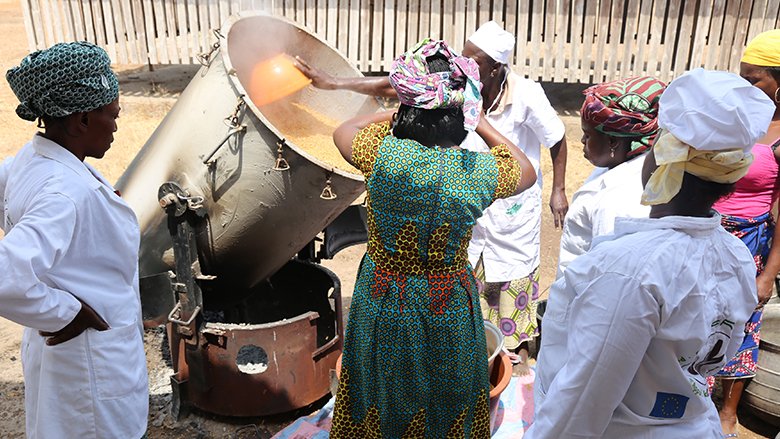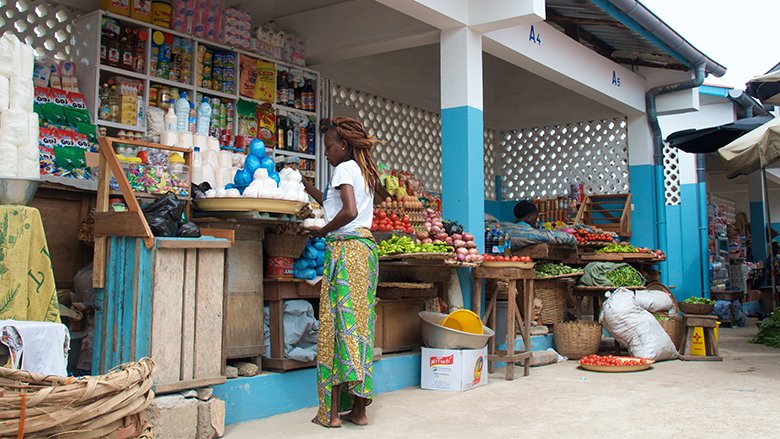As the world marks International Women’s Day this year, women and girls in Benin also have much to cheer about.
Last year, medical certificates required for prosecuting gender-based violence cases were made free, so GBV survivors no longer have to pay for officially documenting a GBV crime.
This followed the enactment of a new law, at 2021-end, that significantly expanded the definition of gender-based violence (GBV) and increased or incorporated punishments for GBV crimes.
And, regulations have facilitated women’s access to a wide array of reproductive, child, adolescents and maternal health services, including modern contraception, and expanded the qualified personnel authorized to prescribe it. This broadened access to quality reproductive healthcare and accompanying confidentiality requirements, should also help reduce the use of clandestine services by adolescents and women.
These are significant steps forward in improving the agency of women in Benin. As many as 70% of women suffer from some form of GBV in their lifetime – that’s 4.5 million women in a country of almost 13 million people.
The toll that GBV extracts on a society and an economy are both profound and enormous. It robs girls of the chance of getting an education, as parents keep their female children out of school to protect them from violence outside the home and even in school. Without an education, many girls get pushed into early marriage as they have few opportunities as young women to get a job or become financially independent and the negative effects carry over into the next generation.
In Benin, the First and Second Unlocking Human and Productive Potential Development Policy Financing series, which began in early 2021 and closes in September 2023, have achieved significant successes, some of which are:
- Legal protections against GBV: A new law, passed in December 2021, significantly strengthens protections against GBV. It expands the definition of GBV and increases or institutes criminal sentences for sexual harassment, rape, child and forced marriage, female genital mutilation, as well as teacher-student incidents. Medical certificates, required for prosecuting GBV crimes, have been made free for GBV survivors. The introduction of the law is seeing early success, with GBV crimes taken up by the justice system increasing to 13.7% in 2022, in just one year of the passing of the law, from 12.1% in 2020, before the law was passed.
- Access to sexual and reproductive health (SRH) services: A health regulatory overhaul in 2021 defines a wide array of services as part of SRH, from sexual and reproductive information to modern contraception, prenatal and postnatal health, access to safe abortions, and support to GBV survivors. It also authorizes qualified nurses to prescribe contraception. This measure expands the availability of health workers that can provide contraception, given the shortage of doctors, particularly in underserved areas. Women and adolescent girls are also able to access SRH services in confidence, without previously required permissions from their husband. These reforms to overhaul SRH services draw on knowledge gained from other World Bank projects and research, including the Sahel Women's Empowerment and Demographic Dividend (SWEDD).
- Keeping girls in school: Girls’ enrollment drops sharply from 62% in lower secondary (equivalent to grades 7-9 in the United States) to just 18% in upper secondary (grades 10-12). GBV, distance to school, social norms, early marriage or pregnancy, lack of sanitation and water in schools are all contributing factors to the low rates of school completion among girls. From the current school year, which began in September 2022, girls’ enrollment in upper secondary school has been made free in areas (20 communes) with the lowest education attainments for girls, with plans to extend free enrollment for girls throughout the country. Staying in and completing school is crucial to change behaviors, improve active labor market participation and reduce fertility.
On this International Women’s Day, Benin can join the rest of the world to celebrate its own efforts to accelerate equality for Beninese women and girls.


